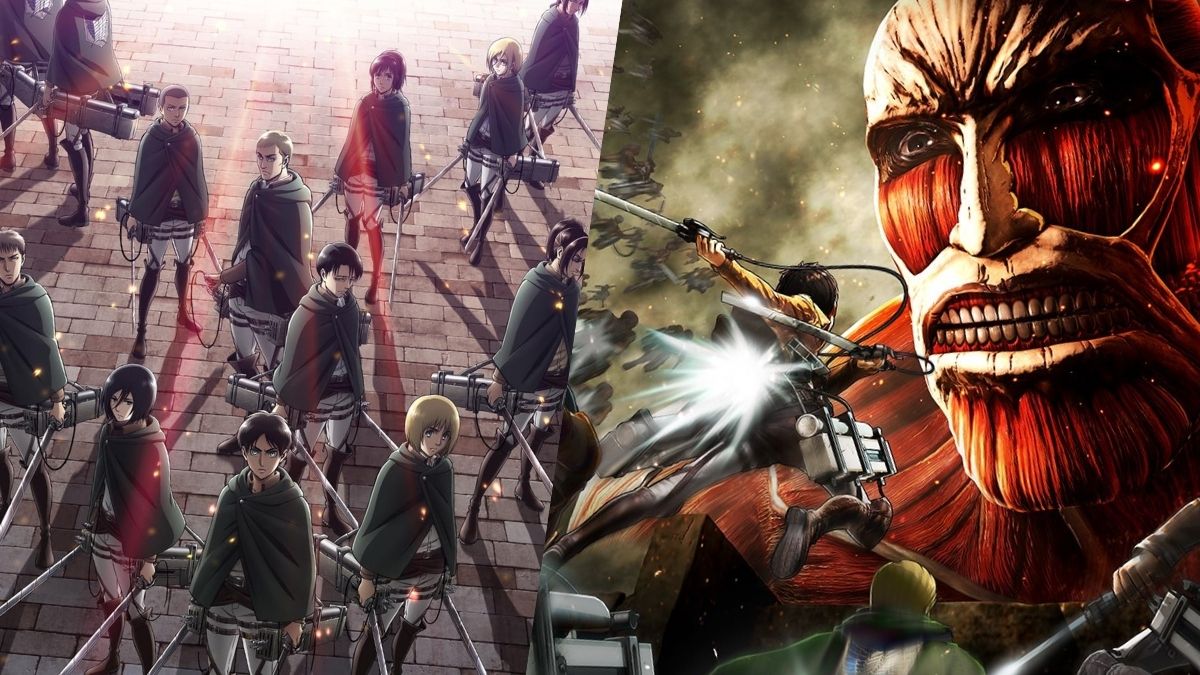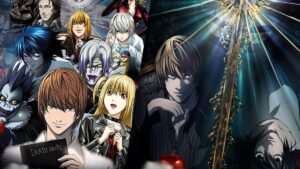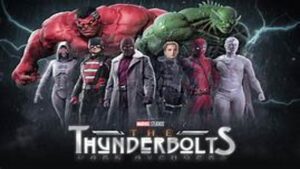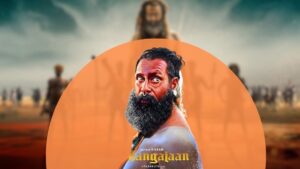
Attack on Titan: Review - A Masterpiece of Anime, 2024
Attack on Titan
Introduction
“Attack on Titan” has taken the anime world by storm, captivating audiences with its intense action, intricate plot, and deep philosophical themes. Created by Hajime Isayama, this series has consistently pushed the boundaries of storytelling and animation, cementing its place as a modern classic.
Attack on Titan features an impressive cast of voice actors who bring the characters to life, both in the original Japanese version and the English dub. Here is a list of some of the main characters and their respective voice actors:
Japanese Cast
- Eren Yeager: Yūki Kaji
- Mikasa Ackerman: Yui Ishikawa
- Armin Arlert: Marina Inoue
- Levi Ackerman: Hiroshi Kamiya
- Erwin Smith: Daisuke Ono
- Historia Reiss / Krista Lenz: Shiori Mikami
- Sasha Blouse: Yū Kobayashi
- Jean Kirstein: Kishō Taniyama
- Reiner Braun: Yoshimasa Hosoya
- Bertolt Hoover: Tomohisa Hashizume
- Hange Zoë: Romi Park
- Connie Springer: Hiro Shimono
- Annie Leonhart: Yū Shimamura
- Zeke Yeager: Takehito Koyasu
English Cast
- Eren Yeager: Bryce Papenbrook
- Mikasa Ackerman: Trina Nishimura
- Armin Arlert: Josh Grelle
- Levi Ackerman: Matthew Mercer
- Erwin Smith: J. Michael Tatum
- Historia Reiss / Krista Lenz: Bryn Apprill
- Sasha Blouse: Ashly Burch (Seasons 1-3) / Erika Harlacher (Season 4)
- Jean Kirstein: Mike McFarland
- Reiner Braun: Robert McCollum
- Bertolt Hoover: David Matranga
- Hange Zoë: Jessica Calvello
- Connie Springer: Clifford Chapin
- Annie Leonhart: Lauren Landa
- Zeke Yeager: Jason Liebrecht
Notable Mentions
- Ymir: Saki Fujita (Japanese) / Elizabeth Maxwell (English)
- Kenny Ackerman: Kazuhiro Yamaji (Japanese) / Phil Parsons (English)
- Pieck Finger: Manami Numakura (Japanese) / Amber Lee Connors (English)
- Falco Grice: Natsuki Hanae (Japanese) / Bryson Baugus (English)
- Gabi Braun: Ayane Sakura (Japanese) / Lindsay Seidel (English)
These voice actors have contributed significantly to the emotional depth and intensity of “Attack on Titan,” ensuring that the series resonates deeply with its audience across both language versions.
Main Characters of Attack on Titan
Eren Yeager
Eren Yeager starts as the passionate and headstrong protagonist, driven by a fierce desire to eradicate the Titans after witnessing his mother’s death during a Titan attack. As the story progresses, Eren’s character undergoes significant development. He grapples with complex moral dilemmas and the weight of his newfound powers, particularly after discovering he can transform into a Titan himself. Eren’s journey from a vengeful youth to a more nuanced and controversial figure is central to the narrative.
Mikasa Ackerman
Mikasa Ackerman, Eren’s adoptive sister, is a formidable warrior known for her exceptional combat skills and unwavering loyalty to Eren. Her tragic backstory, including the murder of her parents and her subsequent rescue by Eren, shapes her fierce protective instincts. Throughout the series, Mikasa’s character is defined by her strength, dedication, and the deep bond she shares with Eren, often acting as his moral compass and protector.
Armin Arlert
Armin Arlert, Eren’s best friend, is initially portrayed as physically weak but intellectually brilliant. His strategic mind and deep sense of empathy play crucial roles in humanity’s battles against the Titans. Armin’s character growth is marked by his increasing confidence and willingness to make difficult decisions. His transformation from a timid boy into a brave and influential member of the Survey Corps highlights the series’ emphasis on the power of intellect and heart in the face of overwhelming adversity.
Levi Ackerman
Levi Ackerman, often regarded as humanity’s strongest soldier, is a central figure in the Survey Corps. Known for his exceptional combat skills and stoic demeanor, Levi’s backstory reveals a harsh upbringing in the underground city. Despite his tough exterior, Levi cares deeply for his comrades and is haunted by the losses he endures. His leadership, tactical acumen, and unwavering resolve make him a fan favorite and a crucial asset in humanity’s fight for survival.
Erwin Smith
Erwin Smith, the charismatic and determined commander of the Survey Corps, is driven by an insatiable curiosity to uncover the truth about the Titans and the world beyond the walls. His willingness to make great sacrifices for the greater good, including risking his own life, underscores his complex moral outlook. Erwin’s strategic brilliance and ability to inspire his troops make him one of the most compelling leaders in the series.
Secondary Characters
Historia Reiss
Historia Reiss, initially introduced as Krista Lenz, is revealed to be the true heir to the throne. Her character arc explores themes of identity, duty, and self-acceptance. Historia’s transformation from a self-sacrificing, people-pleasing girl to a strong and assertive leader reflects her inner strength and determination to shape her own destiny.
Sasha Blouse
Sasha Blouse, affectionately known as “Potato Girl” for her humorous introduction, provides much-needed comic relief amidst the series’ dark themes. Her exceptional marksmanship and keen instincts make her a valuable member of the Survey Corps. Sasha’s warmth and courage endear her to both her comrades and the audience, making her a beloved character.
Jean Kirstein
Jean Kirstein, initially characterized by his pragmatic and self-preserving attitude, evolves into a brave and selfless leader. His journey from a reluctant soldier to a dedicated member of the Survey Corps highlights the theme of personal growth and the importance of camaraderie in the face of adversity.
Reiner Braun and Bertolt Hoover
Reiner Braun and Bertolt Hoover, initially introduced as Eren’s comrades, are later revealed to be Titan shifters with a mission to destroy humanity. Their duality and internal conflicts add layers of complexity to the narrative, showcasing the series’ ability to blur the lines between heroes and villains.
Conclusion
The characters in “Attack on Titan” are integral to its success, each bringing depth, complexity, and emotional resonance to the story. Their development and interactions drive the plot forward, creating a rich tapestry of personal and collective struggles that resonate with viewers. From the main trio of Eren, Mikasa, and Armin to the diverse cast of supporting characters, each individual contributes to the series’ enduring impact and legacy in the anime world.
Plot Overview
Set in a world where humanity teeters on the brink of extinction, “Attack on Titan” follows the lives of Eren Yeager, Mikasa Ackerman, and Armin Arlert. They live within enormous walled cities designed to protect them from the Titans, gigantic humanoid creatures that devour humans seemingly without reason. The story kicks off with a brutal Titan attack that destroys Eren’s hometown, setting him on a path of vengeance and discovery as he joins the elite Survey Corps to fight the Titans and uncover the mysteries behind their existence.
Themes and Narrative Depth
What sets “Attack on Titan” apart from typical shonen anime is its exploration of complex themes. The series delves into the human condition, freedom, and the cyclical nature of hatred and revenge. It challenges viewers to consider the cost of freedom and the grey areas of morality. The narrative is rich with political intrigue and ethical dilemmas, constantly evolving and keeping the audience on their toes.
Character Development
Character development is a strong suit of “Attack on Titan.” Eren starts as a hot-headed, revenge-driven youth but matures into a multifaceted character grappling with his inner demons and the heavy burden of his powers. Mikasa and Armin, his closest friends, also undergo significant growth, with Mikasa’s loyalty and strength becoming a central pillar of the series, and Armin’s intelligence and strategic mind proving crucial in humanity’s fight for survival.
Secondary characters, such as Levi Ackerman and Erwin Smith, are given rich backstories and motivations, making the world of “Attack on Titan” feel lived-in and realistic. The antagonist Titans, and later, human adversaries, are not mere villains but are given depth and rationale, making their actions and motivations understandable, if not sympathetic.
Animation and Art Style
The animation, produced by Wit Studio and later by MAPPA, is nothing short of breathtaking. The fluidity of the action sequences, the intricacies of the Titan designs, and the hauntingly beautiful landscapes contribute to an immersive viewing experience. The art style effectively captures the dark and gritty tone of the series, with detailed character designs and atmospheric backgrounds that enhance the narrative’s emotional weight.
Music and Sound Design
The soundtrack of “Attack on Titan,” composed by Hiroyuki Sawano, is iconic. From the adrenaline-pumping opening themes to the melancholic and stirring background scores, the music amplifies the emotional and dramatic impact of the series. The sound design, including the terrifying roars of the Titans and the visceral sounds of combat, adds to the overall intensity and immersion of the anime.
Conclusion
“Attack on Titan” is more than just an action-packed anime; it is a profound and thought-provoking narrative that challenges viewers to think deeply about freedom, humanity, and the nature of conflict. Its blend of compelling characters, intricate plot, stunning animation, and powerful music makes it a must-watch for any anime fan. As the series concludes, it leaves a lasting legacy and sets a high bar for future anime productions.
In summary, “Attack on Titan” is a masterpiece that will be remembered and celebrated for years to come. It is a shining example of what anime can achieve as a storytelling medium, and it stands as a testament to the creative vision and hard work of everyone involved in its creation.






